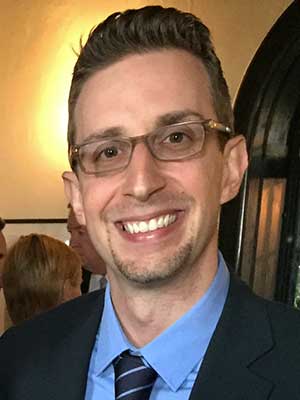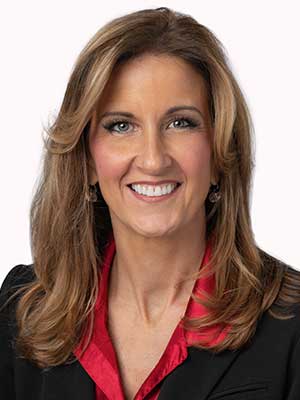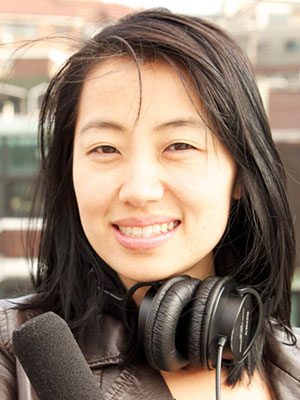
What will you do in Hofstra's Master of Arts in Journalism program? Develop advanced multimedia storytelling tools. Build a wide-ranging professional network. Establish a solid foundation of reporting skills across all media. Pursue a specialized field of sports and entertainment journalism, or community and investigative journalism.
Hofstra's 30-credit graduate degree in Journalism teaches fundamental reporting and effective oral and written expression to prepare you for careers as professional reporters, producers, editors, and broadcasters.
Make headlines on and off the field, or red carpet
Sports and Entertainment Journalism
Discover why Hofstra’s MA in Journalism produces some of the industry’s best reporters and journalists in sports media and entertainment with this specialization.



Become a difference maker in your community
Community and Investigative Journalism
Learn how to use your journalism skills to address broader social goals and be an effective storyteller with this specialization.



Admission Requirements
The Master's in Journalism program offers rolling admissions, which means there is no hard deadline and new students are accepted for both the spring and fall semesters. However, preference for competitive scholarships based on overall GPA and academic potential will be given to early applicants.
The online application may be found on our website through the Office of Graduate Admissions. Applicants must complete the personal statement portion of the application, a 500-750 word essay detailing “personal and educational history, past employment, volunteer work or related experience in your intended field of study, plans for graduate study and plans for a professional career.” Applicants are also encouraged to submit up to two letters of recommendation and any published news clips (newspaper, magazine and/or online) they may have, although these are not required for admission into the program. All applicants must submit a current resume and transcripts. GRE scores are optional.
Prospective students should have completed an undergraduate degree from an accredited institution, and earned an overall grade point average of at least 2.75. In addition, applicants are advised to complete an undergraduate course in News Writing and Reporting (equivalent to Journalism 11 at Hofstra) and in Copy Editing (equivalent to Journalism 53 at Hofstra), or have equivalent professional experience. However, these courses are not required for admission.
An interview with the program director is strongly recommended but not required for admission to the program. Applicants may arrange for either an on-campus or telephone interview.
The Department understands that any single criterion may not reliably predict a candidate's potential for success in the program. We encourage students who may not meet all of the criteria to apply if they have other experiences that make them suitable candidates for the program.
Curriculum:
Journalism, MA
Tuition Costs & Financial Aid
Tuition and fees for the MA in Journalism are charged per credit hour. See a current listing of graduate tuition and fees.
A limited number of partial scholarships are awarded for qualified students. Other student aid in the form of graduate assistant jobs, loans and work-study programs may also be available. General questions about financial aid (grants and loans) should be directed to the Hofstra Office of Financial Aid or can be found in our Financial Aid Programs and Procedures for Graduate Students brochure.
Scholarship preference will be given to applicants with a GPA of 3.5 or higher, and to those who apply for admission early.
FAQ
We pulled together the most frequently asked questions about our program to make the fact finding and application process as easy as possible as you begin this journey.
What degrees are offered?
Are there any specializations?
When are the application deadlines?
How do I apply?
Is there a minimum GPA or GRE requirement?
What else is required with my application?
When will I know if I have been accepted or not?
How much does it cost?
Are there scholarships?
How many credits are needed for the degree?
What type of courses will I take?
How long does it take to complete the program?
How are the courses structured?
Are there any BA/MA dual journalism degree programs?
What type of academic majors from undergrad are accepted or preferred for the MA program?
How active are MA students in campus media?
How can I get more information?
Admitted Students
We are thrilled about your acceptance to The Lawrence Herbert School of Communication MA journalism program. As the journalism industry continues to evolve quickly, so is our program and you are part of these positive and sweeping changes in storytelling and higher education.
As you embark on this journey, we thought it would be helpful to provide some preliminary information that will be helpful as you make your decision to enroll.
Review Letter of Acceptance
Your letter of acceptance from Graduate Admissions is extremely important and contains all of the vital information for you to register and formally enroll. Please reply to admissions and the graduate director upon receipt of the email to inform them about your decision on attending. We do have our own acceptance page which is linked in the official acceptance letter.
Orientation
There is an orientation for both fall and spring students. This information will be provided by the admissions department and your graduate directo
Financial Aid
Tuition and fees for the MA in Journalism are charged per credit hour. See a current listing of graduate tuition and fees. A limited number of partial scholarships are awarded for qualified students. Other student aid in the form of graduate assistant jobs, loans and work-study programs may also be available. General questions about financial aid (grants and loans) should be directed to the Hofstra Office of Financial Aid or can be found in our Financial Aid Programs and Procedures for Graduate Students brochure. Scholarship preference will be given to applicants with a GPA of 3.5 or higher, and to those who apply for admission early.
Advisor
For the MA Journalism program your advisor is the graduate program director. Sync with them early and often to make sure you have all your questions answered.
Campus Media
Get involved! Dive in at The Chronicle, WRHU, Hofstra TV and so many of the great student-run organizations on campus. Don’t wait either, make sure you do it as soon as you can to capitalize on the experience. The graduate director can make introductions for you.
Course Selection
Again you’ll want to sync with your graduate director, who can provide guidance on the proper course track based on class availability. One bit of advice is to always look at least one semester ahead so you can nail down at least one year worth of thoughts and formulate a game plan.
Secure Your Seat
Since no deposit is required for this program, registration in coursework will secure your seat in the program. Please connect with the MA Journalism graduate program director when you are ready to create an academic plan and register for classes.
Activate Your MyHofstra Portal and Hofstra Email Account
Follow the directions on the IT website to activate your Hofstra network account (my.hofstra.edu portal) using your Hofstra ID number. You will find this number on your acceptance letter. Use the portal to access your Hofstra email account, view your course schedule and tuition bill, view on-campus jobs, and more.
Specialization
You have the option to choose from two specializations: sports and entertainment journalism or community and investigative journalism. Ideally, you make this decision during your first semester so you can start to take classes that align with your specialization.
Pride & Purpose
Be proud, get involved, be active and enjoy the experience. The more you put in at Hofstra, the more it will benefit you in the long run.
Faculty
 James J. Parziale
James J. Parziale
Adjunct Assistant Professor
318 Herbert School of Communication
516-463-4873
E-mail | Bio

Kristin Thorne
Assistant Adjunct Professor
Herbert School of Communication
E-mail
Advisory Board
The Hofstra graduate journalism advisory board helps provide insights from the industry that helps craft and evolve the landscape of the program. Our graduate journalism director uses input from alumni, professionals and students to help make decisions about the curriculum, specializations and overall academic direction.
- Tara Conry: Newsday
- Michael Fuller: NBC Connecticut
- James Parziale: New York Post
- Frank Pokorney: News 12 Networks
- David Reich-Hale: Northwell Health
- Adam Sennott: Boston Globe
- Viktoria Sundqvist: Connecticut Post
- Marcus Vanderberg: Yahoo Sports
Chris R. Vaccaro is the director of graduate journalism and oversees the advisory board and journalism program.
Advisement
Master of Journalism students should contact the graduate program director as soon as they arrive on campus. Students should meet with the director, who will serve as their academic adviser throughout their time in the program, at least once a semester for enrollment and academic questions, help with internship placement, departmental job opportunities, scholarships, career advisement, and any other issues related to the program. In addition to the graduate director, other faculty members within the Department are also available for advisement on individualized research projects.

Capstone Project

Career Opportunities
Increasingly, news outlets are looking for students with the skills necessary to function in a convergent, multimedia news environment. An MA in Journalism prepares students not only for jobs in broadcasting, newspapers, magazines, and online publications, but also for a wide range of other professional careers. Graduates of the program will also be well-trained to serve as public information officers for government and nonprofit organizations, to write and edit in-house publications for businesses, medical centers, or research laboratories, or to serve as fundraising writers in development offices. Other graduates may opt to become technical writers or editors for trade magazines or book publishers. In short, graduates will be welcome wherever there is a need for people who can understand complex information and communicate it effectively to general audiences.
Through a diverse set of courses and practical experiences, our program produces graduates with a solid grounding in skills and ethics and the flexibility to adapt to the ever-changing demands of professional journalism.
Hofstra is located a short distance from New York City, the communications capital of the country. The New York metropolitan area is home to most of the nation’s 10,000 magazines, three major dailies and hundreds of smaller newspapers, the major broadcast networks and dozens of cable stations, and the largest public relations firms in the world. Students will be able to take advantage of the numerous print, broadcast, and electronic media outlets within close proximity to the campus.
 Scott A. Brinton
Scott A. Brinton Elizabeth R. Burke
Elizabeth R. Burke Susan Drucker, JD
Susan Drucker, JD Mario Gonzalez
Mario Gonzalez Peter Goodman
Peter Goodman Carolyn James
Carolyn James Cliff Jernigan
Cliff Jernigan Chris R. Vaccaro
Chris R. Vaccaro Doualy Xaykaothao
Doualy Xaykaothao Kristal B. Zook, PhD
Kristal B. Zook, PhD